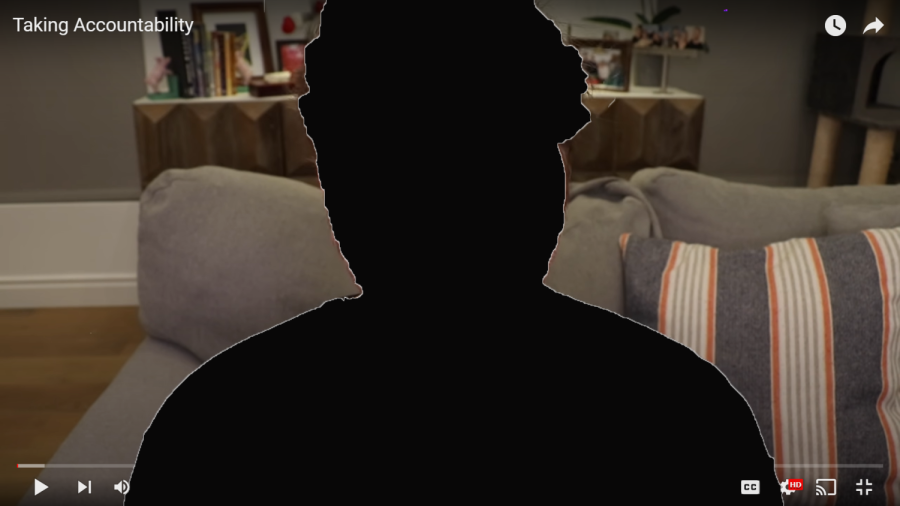Cancel culture craze: Does the punishment fit the crime? (Editorial)
CANCELED OUT: “Cancel culture” refers to taking away support (especially financial gain) of public figures and products when those involved are found to be responsible for offensive actions, such as committing a crime. But is this really a solution? This writer says no.
As the saying goes, bad press is still press. So why has “canceling” become such a big thing? Why does it make people nervous?
Cancel Culture is a term that has been making its way through the media. It refers to the act of abandoning someone, who may have done something that is perceived as atrocious or bad. It’s similar to boycotting, in that the person who is “canceled” will be shamed and called out for their actions or words. Cancelling can also refer to removing your financial support for a business or a person.
Merriam Webster defines “cancel” as withdrawing your support for someone publicly and especially on social media.
The result of Cancel Culture has been various. It’s both good and bad, depending on the extent that the “canceling” is taken to. But has anyone ever really been “canceled”?
There are plenty of examples of celebrities and influencers who have had their past mistakes criticized. Unfortunately, there aren’t many examples of people who have been successfully “canceled”. “Cancelling” in itself has never really worked because as I said earlier, bad press is still press.
Take Shane Dawson for example. Shane Dawson is a comedy YouTuber who rose to fame in 2008 and had half a million subscribers by 2010. More recently, Dawson was exposed for his racist past including videos containing blackface and racial slurs. He was also confirmed to have had inappropriate relationships with minors online and in person. He has been publicly scrutinized and has garnered an awful image in the eye of the media over the past few years for these reasons, but his most recent YouTube video still grossed over 3.6 million views.
Youtuber James Charles was accused of similar actions (having inappropriate relationships with minors). Despite this, he still has 24.4 million subscribers on YouTube. If that wasn’t bad enough, his cosmetic net worth is a rough $22 million, meaning his makeup palette is still selling.
So all of this only proves one thing: when someone is being talked about, their career will still thrive. Their name is being put into articles and videos. Even if those videos are discussing and criticizing their actions, they’re still receiving press.
The social media platform that is most associated with the term is Twitter. Most commonly, a celebrity or influencer may tweet something questionable in the past or present and whatever they may have said will then be resurfaced and used against them. That particular person will be “canceled” and have almost all of Twitter talking about what they said or did.
But even if the majority of people are against them, they’ll still receive supporters. So back to the original question, why does it make people so nervous? It never actually has major consequences on their career, so what does it do?
One of the main effects that it has is on mental health. Many influencers have received hate due to their past, and people flood to their social media comments and dm’s to send hate and threats. For example, Charli D’amelio vaped while she was livestreaming on TikTok. People instantly called her out and started to unfollow her, along with targeting her in threatening ways. Naturally, this can take a toll on a person’s mental health, especially if what they’re being hated on for wasn’t that serious.
Another dent that canceling can have on the targeted person is financial loss. The more followers that you have, the more money you make. Despite still having supporters and followers, a big portion of people will unfollow and remove their initial support. This will lead to a loss of money, having a negative impact on their bank account. They may not lose their job, but they could lose income. Interestingly, it’s also possible for them to gain more income due to more views or purchases of their product, such as the aforementioned success of James Charles and Shane Dawson after their “canceling”.
The main idea is, there’s a difference between opinion and crime. If you were to go online and send open threats to an individual or a group of people, that would be far different.
A good example of the lines being blurred is when actress Gina Carano was removed from her role in the Mandalorian. Carano tweeted a comparison implying that being a Republican today is similar to being a Jewish person in the Holocaust. This comparison is rude and disrespectful. Although that tweet was uncalled for, Lucasfilm decided she would no longer be employed for their company. I don’t agree with what she said, and I think she would have been better off not tweeting such a comparison. But I also believe that she shouldn’t have lost her job because of it.
I don’t know if cancel culture is in need of a solution, but there are ways we can improve or reduce the effect on mental health. To do that we should all start by minding our own business. The only time getting involved in a situation is necessary is if that situation is criminal or actively harming someone and no one knows except a small group of people. But if the actions/words are not necessarily an issue of public matter, like D’amelio’s case of vaping, then I say leave it be.
Disclaimer: Articles designated as “Editorial” represent the views and opinions of the author, not the 2021-2022 Periscope staff, CHS/CASD administration, or the CHS student body.
Want to help the Herd? Please consider supporting the Periscope program. Your donation will support the student journalists of CHS and allow us to purchase equipment, send students to workshops/camps, and cover our annual website hosting costs.

Rylie is a freshman at Carlisle and this is their first year in the Periscope staff. They finds joy in being around friends, writing, and staring at...





























































































Alexandra • May 24, 2022 at 11:48 pm
This was a very interesting article and well thought out! I feel like it’s tricky being in the public eye when you could be cancelled for a mistake.
Allie Attinger • Feb 1, 2022 at 1:43 pm
Fascinating. I could definitely see both sides of this argument. Thank you for your hard work on this article, Rylie!